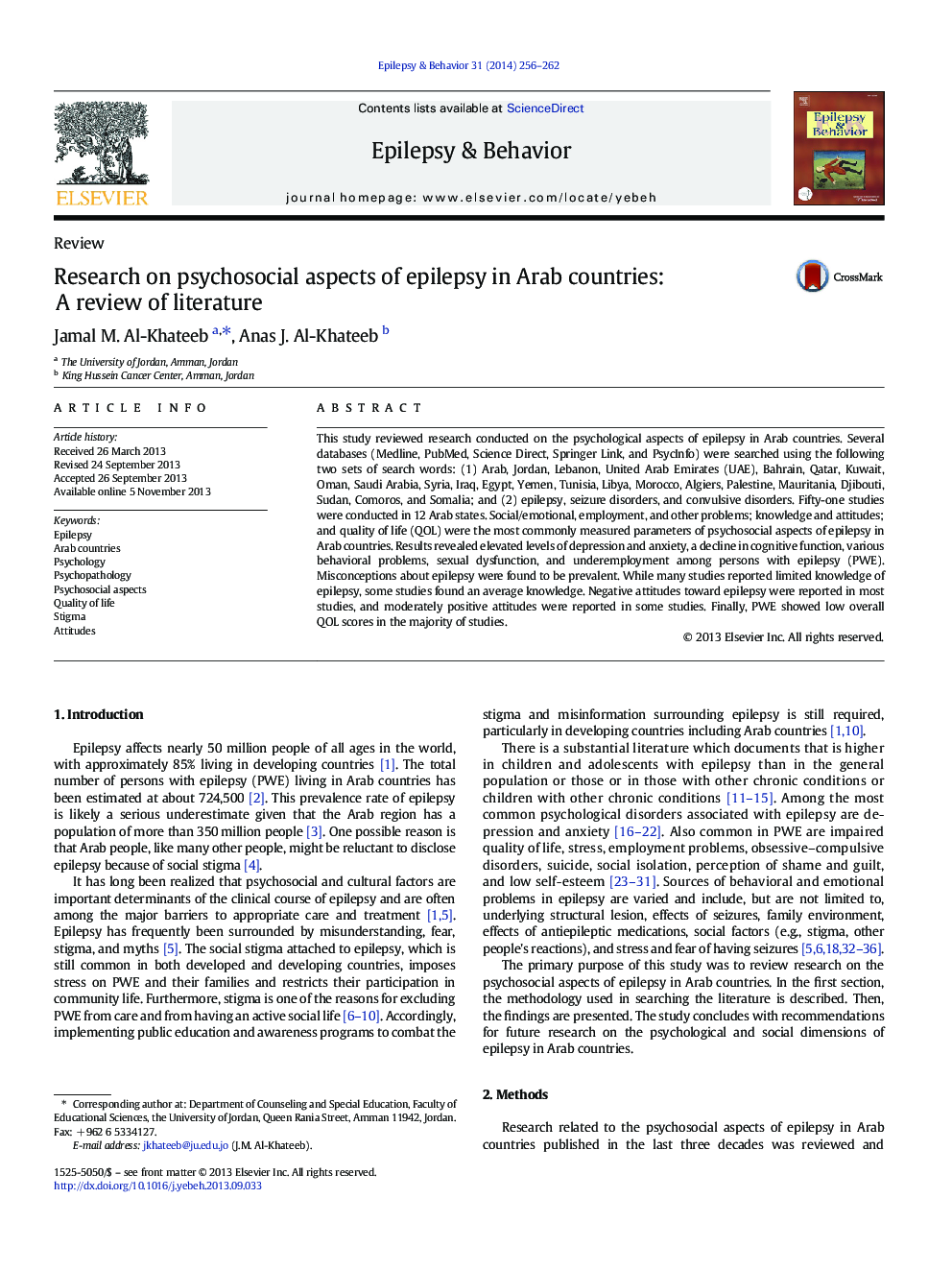| Article ID | Journal | Published Year | Pages | File Type |
|---|---|---|---|---|
| 6012493 | Epilepsy & Behavior | 2014 | 7 Pages |
â¢Research on the psychosocial aspects of epilepsy has been conducted in 9 out of 22 Arab countries.â¢The main parameters in those studies were awareness, knowledge, and attitudes; social/emotional problems; and quality of life.â¢Knowledge of epilepsy was limited to moderate.â¢Attitudes were generally negative.â¢QOL of PWE was generally low.
This study reviewed research conducted on the psychological aspects of epilepsy in Arab countries. Several databases (Medline, PubMed, Science Direct, Springer Link, and PsycInfo) were searched using the following two sets of search words: (1) Arab, Jordan, Lebanon, United Arab Emirates (UAE), Bahrain, Qatar, Kuwait, Oman, Saudi Arabia, Syria, Iraq, Egypt, Yemen, Tunisia, Libya, Morocco, Algiers, Palestine, Mauritania, Djibouti, Sudan, Comoros, and Somalia; and (2) epilepsy, seizure disorders, and convulsive disorders. Fifty-one studies were conducted in 12 Arab states. Social/emotional, employment, and other problems; knowledge and attitudes; and quality of life (QOL) were the most commonly measured parameters of psychosocial aspects of epilepsy in Arab countries. Results revealed elevated levels of depression and anxiety, a decline in cognitive function, various behavioral problems, sexual dysfunction, and underemployment among persons with epilepsy (PWE). Misconceptions about epilepsy were found to be prevalent. While many studies reported limited knowledge of epilepsy, some studies found an average knowledge. Negative attitudes toward epilepsy were reported in most studies, and moderately positive attitudes were reported in some studies. Finally, PWE showed low overall QOL scores in the majority of studies.
